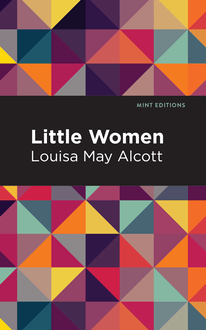-
 Univers
Univers
-
 Ebooks
Ebooks
-
 Livres audio
Livres audio
-
 Presse
Presse
-
 Podcasts
Podcasts
-
 BD
BD
-
 Documents
Documents
-
- Cours
- Révisions
- Ressources pédagogiques
- Sciences de l’éducation
- Manuels scolaires
- Langues
- Travaux de classe
- Annales de BEP
- Etudes supérieures
- Maternelle et primaire
- Fiches de lecture
- Orientation scolaire
- Méthodologie
- Corrigés de devoir
- Annales d’examens et concours
- Annales du bac
- Annales du brevet
- Rapports de stage
La lecture à portée de main
Vous pourrez modifier la taille du texte de cet ouvrage
Découvre YouScribe en t'inscrivant gratuitement
Je m'inscrisDécouvre YouScribe en t'inscrivant gratuitement
Je m'inscrisEn savoir plus
Vous pourrez modifier la taille du texte de cet ouvrage
En savoir plus

Description
As it is common and necessary in the academic world, students study art and its history, perceiving many, many works over their academic career. However, it is rare that a piece art can be traced back to a student through personal history. Yet, Professor Fletcher’s pupils get this chance as they study a portrait of a woman named Lady Hammerton. First starting with the story of his grandfather’s scandalous marriage to a woman twenty-four years younger than him, Professor Fletcher leads the discussion on the intriguing story behind the portrait, and the colorful personality and accomplishments of the lady immortalized on the canvas. While the students hear of stories both heart-breaking, inspirational, and shocking, they become even more invested when they realize the uncanny resemblance a fellow student, Milly, shares with the woman in the painting. As they learn of their blood connection, the students keep these stories in mind as they continue their studies with a greater perspective.
Though not often found in print, The Invader: A Novel by Margaret Louisa Woods is a compelling and thought-provoking read. Through the exploration of topics such as art, history, and ancestry, this dramatic novel allows modern readers a privileged perspective into the culture of the early 20th century, especially concerning the academic world. With captivating characters, and vivid description, The Invader: A Novel is alluring and fascinating. Decorated with Woods’ gorgeous and poem-like prose, The Invader: A Novel intimately depicts characters and scenery that stay imprinted on readers’ minds long after the narrative is finished.
This edition of The Invader: A Novel by Margaret Louisa Woods features an eye-catching new cover design and is presented in a font that is both modern and readable. With these accommodations, this edition is accessible and appealing to contemporary audiences, restoring The Invader: A Novel to modern standards while preserving the poetic prose and mastery of Margaret Lousia Woods’ work.
Sujets
Informations
| Publié par | Mint Editions |
| Date de parution | 26 janvier 2021 |
| Nombre de lectures | 0 |
| EAN13 | 9781513284972 |
| Langue | English |
| Poids de l'ouvrage | 4 Mo |
Informations légales : prix de location à la page 0,0500€. Cette information est donnée uniquement à titre indicatif conformément à la législation en vigueur.
Extrait
The Invader
A Novel
Margaret L. Woods
The Invader: A Novel was first published in 1907.
This edition published by Mint Editions 2020.
ISBN 9781513279954 | E-ISBN 9781513284972
Published by Mint Editions®
minteditionbooks .com
Publishing Director: Jennifer Newens
Design & Production: Rachel Lopez Metzger
Project Manager: Micaela Clark
Typesetting: Westchester Publishing Services
C ONTENTS I II III IV V VI VII VIII IX X XI XII XIII XIV XV XVI XVII XVIII XIX XX XXI XXII XXIII XXIV XXV XXVI XXVII XXVIII XXIX XXX XXXI XXXII
I
Dinner was over and the ladies had just risen, when the Professor had begged to introduce them to the new-comer on his walls. The Invader, it might almost have been called, this full-length, life-size portrait, which, in the illumination of a lamp turned full upon it, seemed to take possession of the small room, to dominate at the end of the polished-oak table, where the light of shaded candles fell on old blue plates, old Venetian glass, a bit of old Italian brocade, and chrysanthemums in a china bowl coveted by collectors. Every detail spoke of the connoisseurship, the refined and personal taste characteristic of Oxford in the eighties. The authority on art put up his eye-glasses and fingered his tiny forked beard uneasily.
“There’s no doubt it’s a good thing, Fletcher,” he said, presently—“really quite good. But it’s too like Romney to be Raeburn, and too like Raeburn to be Romney. You ought to be able to find out the painter, if, as you say, it’s a portrait of your own great-grandmother—”
“He did say so!” broke in Sanderson, exultantly. “He said it was an ancestress. Fletcher, you’re a vulgar fraud. You’ve got no ancestress. You bought her. There’s a sale-ticket still on the frame under the projection at the right-hand lower corner. I saw it.”
Sanderson was a small man and walked about perpetually, except when taking food: sometimes then. He was a licensed insulter of his friends, and now stood before the picture in a belligerent attitude. The Professor stroked his amber beard and smiled down on Sanderson.
“True, O Sanderson; and at the same time untrue. I did buy the picture, and the lady was my great-grandmother once, but she did not like the position and soon gave it up. This picture must have been done after she had given it up.”
“Is this a conundrum or blather, invented to hide your ignominy in a cloud of words?” asked Sanderson.
“It’s a hors d’oeuvre before the story,” interposed Ian Stewart, throwing back his tall dark head and looking up at the picture through his eye-glasses, his handsome face alive with interest. “ ‘Tak’ awa’ the kickshaws,’ Fletcher, ‘and bring us the cauf.’ ”
The Professor gathered his full beard in one hand and smiled deprecatingly.
“I don’t know how the ladies will like my ex-great-grandmother’s story. It was a bit of a scandal at the time.”
“Never mind, Mr. Fletcher,” cried a young married woman, with a face like a seraph, “we’re all educated now, and scandal about a lady with her waist under her arms becomes simply classical.”
“Not so bad as that, Mrs. Shaw, I assure you,” returned the Professor; “but I dare say you all know as much as I do about my great-grandmother, for she was the well-known Lady Hammerton.”
There were sounds of interest and surprise, for most of the party knew her name, and were curious to learn how she came to be Professor Fletcher’s great-grandmother. Mr. Fletcher explained:
“My great-grandfather was a distinguished professor in Edinburgh a hundred years ago. When he was a widower of forty with a family, he was silly enough to fall in love with a little miss of sixteen. He taught her Latin and Greek—which was all very well—and married her, which was distinctly unwise. She had one son—my grandfather—and then ran away with an actor from London. After that she made a certain sensation on the stage, but I suspect she was clever enough to see that her real successes were personal ones; at all events, she made a good marriage as soon as ever she got the chance. The Hammerton family naturally objected. You’ll find all about it in those papers which have come out lately. I believe, ladies, they were almost as much scandalized by her learning as by her morals.”
“She told Sydney Smith years after, I think,” observed Stewart, “that she had to be a wit lest people should find out she was a blue. There’s a good deal about her in the Englefield Memoirs . She travelled extraordinarily for a woman in those days, and most of the real treasures at Hammerton House come from her collections.”
“I thought they were nearly all burned in a great fire, and she was burned trying to save them,” said Mrs. Shaw.
“A good many were saved,” returned Fletcher; “she had rushed back to fetch a favorite bronze, was seen hurling it out of the window—and was never seen again.”
“She must have been a very remarkable woman,” commented Stewart, meditatively, his eyes still fixed on the picture.
“Know nothing about her myself,” remarked Sanderson; “Stewart knows something about everybody. It’s sickening the way he spends his time reading gossip and calling it history.”
“Gossip’s like many common things, interesting when fossilized,” squeaked a little, white-haired, pink-faced old gentleman, like an elderly cherub in dress-clothes. He had remained at the other end of the room because he did not care for pictures. Now he toddled a little nearer and every one made way for him with a peculiar respect, for he was the Master of Durham, whose name was great in Oxford and also in the world outside it. He looked up first at the pictured face and then at Milly Flaxman, a young cousin of Fletcher’s and a scholar of Ascham Hall, who had taken her First in Mods, and was hoping to get one in Greats. The Master liked young girls, but they had to be clever as well as pleasing in appearance to attract his attention.
“It’s very like Miss Flaxman,” he squeaked.
Every one turned their eyes from the picture to Milly, whose pale cheeks blushed a bright pink. The blush emphasized her resemblance to her ancestress, whose brilliant complexion, however, hinted at rouge. Milly’s soft hair was amber-colored, like that of the lady in the picture, but it was strained back from her face and twisted in a minute knot on the nape of her neck. That was the way in which her aunt Lady Thomson, whose example she desired to follow in all things, did her hair. The long, clearly drawn eyebrows, dark in comparison with the amber hair, the turquoise blue eyes, the mouth of the pictured lady were curiously reproduced in Milly Flaxman. Possibly her figure may have been designed by nature to be as slight and supple, yet rounded, as that of the white-robed, gray-scarfed lady above there. But something or some one had intervened, and Milly looked stiff and shapeless in a green velveteen frock, scooped out vaguely around her white young throat and gathered in clumsy folds under a liberty silk sash.
Mrs. Shaw cried out enraptured at the interesting resemblance which had escaped them all, to be instantly caught by the elderly cherub in the background, who did not care about art, while the Professor explained that both Milly’s parents were, like himself, great-grandchildren of Lady Hammerton. The seraph now fell upon Milly, too shy to resist, had out her hair-pins in a trice and fingered the fluffy hair till it made an aureole around her face. Then by some conjuring trick producing a gauzy white scarf, Mrs. Shaw twisted it about the girl’s head, in imitation of the lady on the wall, who had just such a scarf, but with a tiny embroidered border of scarlet, twisted turban-wise and floating behind.
“There!” she cried, pushing the feebly protesting Milly into the full light of the lamp the Professor was holding, “allow me to present to you the new Lady Hammerton!”
There was a moment of wondering silence. Milly’s pulses beat, for she felt Ian Stewart’s eyes upon her. Neither he nor any one else there had ever quite realized before what capacities for beauty lay hid in the subdued young face of Milly Flaxman. She had nothing indeed of the charm, at once subtle and challenging, of the lady above there. She, with one hand on the gold head of a tall cane, looking back, seemed to dare unseen adorers to follow her into a magic, perhaps a fatal fairyland of mountain and waterfall and cloud; a land whose dim mists and silver gleams seemed to echo the gray and the white of her floating garments, its autumn leaves to catch a faint reflection from her hair, while far off its sky showed a thin line of sunset, red like the border of her veil. Milly’s soft cheeks and lips were flushed, her eyes bright with a mixture of very innocent emotions, as she stood with every one’s eyes, including Ian Stewart’s, upon her.
But in a minute the Master took up Mrs. Shaw’s remark.
“No,” he said, emphatically; “not a new Lady Hammerton; only a rather new Miss Flaxman; and that, I assure you, is something very preferable.”
“I’m quite sure the Master knows something dreadful about your great-grandmother, Mr. Fletcher,” laughed Mrs. Shaw.
“I think we’d better go before he tells it,” interposed Mrs. Fletcher, who saw that Milly was feeling shy.
When the ladies had left, the men reseated themselves at the table and there was a pause. Everyone waited for the Master, who seemed meditating speech.
“My mother,” he said—and somehow they all felt startled to learn the fact that the Master had had a mother—“my mother knew Lady Hammerton in the twenties. She was often at Bath.”
The thin, staccato voice broke off abruptly, and three out of the five other men present being the Master’s pupils, remained silent, knowing he had not finished. But Mr. Toovey, a young don overflowing with mild intelligence, exclaimed, deferentially:
“Really, Master! Really! How extremely interesting! Now do please tell us a great deal about Lady Hammerton.”
The Master took no notice whatever of Toovey. He sat about a minute longer
-
 Univers
Univers
-
 Ebooks
Ebooks
-
 Livres audio
Livres audio
-
 Presse
Presse
-
 Podcasts
Podcasts
-
 BD
BD
-
 Documents
Documents
-
Jeunesse
-
Littérature
-
Ressources professionnelles
-
Santé et bien-être
-
Savoirs
-
Education
-
Loisirs et hobbies
-
Art, musique et cinéma
-
Actualité et débat de société
-
Jeunesse
-
Littérature
-
Ressources professionnelles
-
Santé et bien-être
-
Savoirs
-
Education
-
Loisirs et hobbies
-
Art, musique et cinéma
-
Actualité et débat de société
-
Actualités
-
Lifestyle
-
Presse jeunesse
-
Presse professionnelle
-
Pratique
-
Presse sportive
-
Presse internationale
-
Culture & Médias
-
Action et Aventures
-
Science-fiction et Fantasy
-
Société
-
Jeunesse
-
Littérature
-
Ressources professionnelles
-
Santé et bien-être
-
Savoirs
-
Education
-
Loisirs et hobbies
-
Art, musique et cinéma
-
Actualité et débat de société
- Cours
- Révisions
- Ressources pédagogiques
- Sciences de l’éducation
- Manuels scolaires
- Langues
- Travaux de classe
- Annales de BEP
- Etudes supérieures
- Maternelle et primaire
- Fiches de lecture
- Orientation scolaire
- Méthodologie
- Corrigés de devoir
- Annales d’examens et concours
- Annales du bac
- Annales du brevet
- Rapports de stage














